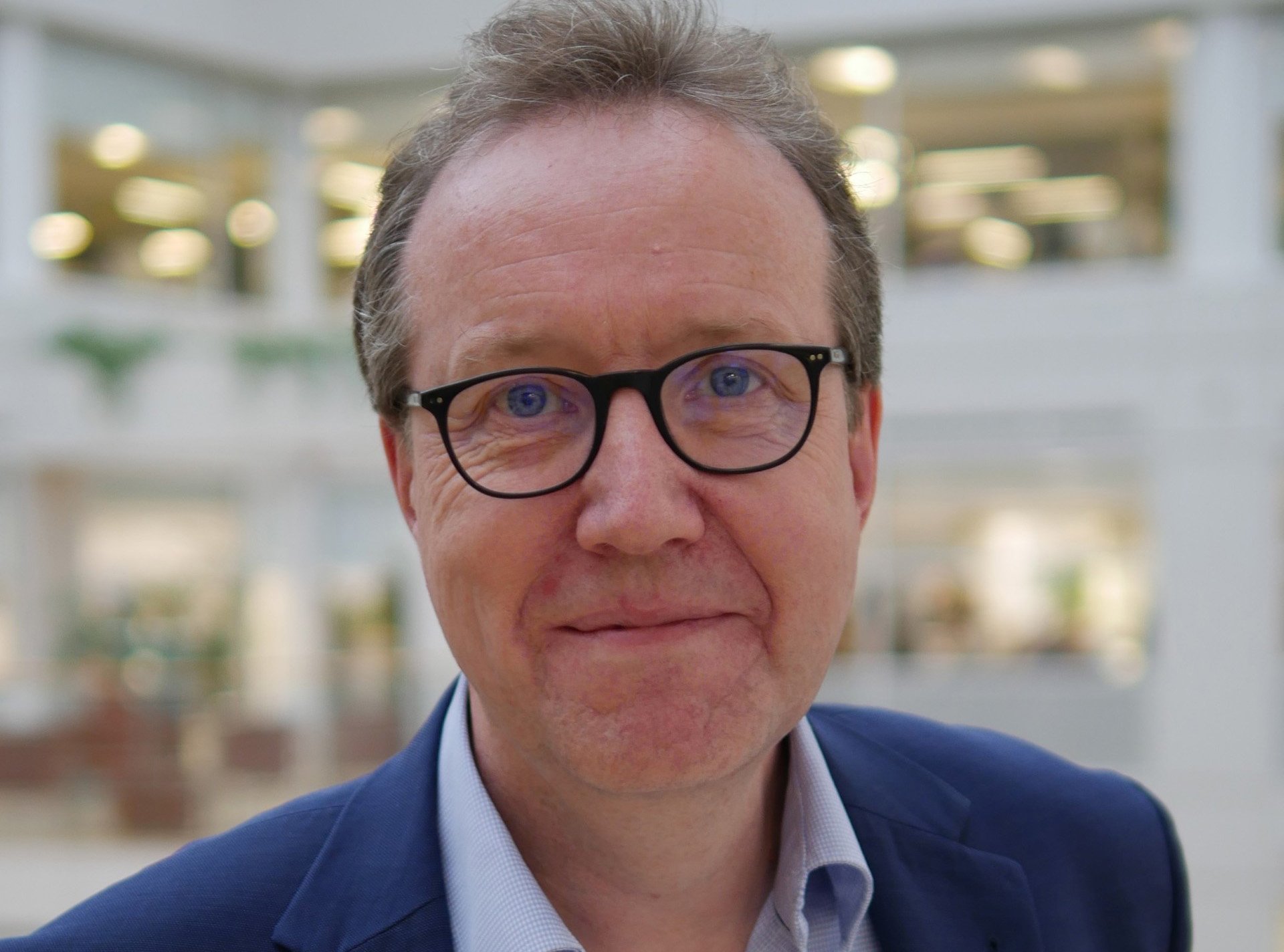Will Smart FBCS, the new chair of the BCS Health and Care Faculty, walks Martin Cooper MBCS through his vision for the BCS group and digital health in general.
While the arrival of COVID-19 may have forced some digital transformation upon the health and care sector, Will Smart says that there is still a lot left to do. As you read on, we’ll explain his views on what is possible, probable and desirable in the sector’s ongoing digitalisation. We’ll also discover his views on professionalism and BCS’ place in designing and realising this future.
Why don’t you introduce yourself and tell us a little about your career to date?
I have worked in healthcare for over 30 years, beginning as an information analyst at Saint Mary’s Hospital in London. I spent time in and around government in consultancy, then returned to the NHS in 2016 as CIO at the Royal Free and later became national CIO for health and care. I’ve been a BCS member for nearly 10 years.
Congratulations on becoming the new chair of the BCS health and care faculty. What do we need to know about it as a body?
The BCS Health and Care Faculty was established to foster a strong community of practice for individuals working in digital health across the UK. Whether in the NHS, social care, academia or health tech, the faculty supports professional development and helps set standards for the sector. It also aims to provide practical resources to help people grow in their roles. Crucially, we strive to ensure that digital professionals have a stronger voice in national health and care decision making.
Talk to us about your plans as the new chair.
My priority is to speak with people both within and beyond the faculty to understand what the profession needs from us. These are early ideas, but my goal is to help build a respected and influential digital profession, one that is equipped to lead innovation and drive the transformation of health and care.
The faculty does not create the profession, but it can provide a clear focus and a space for professionals to come together, shape the digital agenda, and support one another. We want digital professionals to be recognised and heard, much like accountants are, because of their standards and discipline. That means being present when key decisions are made, whether in government or local boardrooms. We also need to ensure clear career paths and provide the right skills and resources so professionals can succeed in a field that is both complex and demanding. The faculty exists to support and strengthen that ambition.
What should a digitalised health and care system feel like to a patient?
From a patient's perspective, our digital health and care service should be easier to use. When I worked at the Royal Free, patient surveys often praised the quality of care once people reached the clinical team. The problem was getting there. Many found the process confusing and frustrating.
Technology alone will not fix this. Adding digital tools to an already complex structure makes it harder to use. We need a clear model for how digital fits into care. That means thinking about what good looks like, not just adding more technology.
I don't think we will leap from where we are today to Star Trek in the next 10 years. We need practical systems that reduce barriers, support people effectively, and make the experience feel seamless and straightforward.
Why does health care lag behind, say, internet banking in terms of digital maturity?
It is an interesting question. I have been using telephone banking and online banking for over 30 years, and I’m comfortable with those technologies. But one of the main criticisms of closing banks on the high street is the loss of that professional, personal touch. You are left with a machine saying yes or no. In healthcare, that human connection is central — we can’t lose it, unlike banking, which appears to be.
For you
Be part of something bigger, join BCS, The Chartered Institute for IT.
So, I do not think we should imagine a digitally enabled healthcare system where doctors and nurses sit in a room far removed from the patient, and robots deliver care.
The modern hospital is a Napoleonic concept. It made sense then. It is 2025 now. Perhaps it is time we properly considered what a modern health system should look like and then think carefully about how digital tools can support it. And that means thinking beyond apps. Digital is not just about software. It's about redesigning care in a way that fits how we live and where it can do the most good.
What do you see as the barriers and enablers in this journey?
First, we need a strong and respected profession that is seen as part of the solution, not as part of the problem.
We require a long-term strategy for the digital enablement of healthcare, one that lasts beyond the tenure of any single health or social care secretary.
The focus should shift away from technology itself and towards the outcomes we want to achieve. Technology remains an enabler, whether in banking, hotels or healthcare.
What is the role of professionalism in the sector?
Professionalism in digital health is crucial because we work in a safety-critical industry. Even technology that seems purely administrative can have a direct impact on the safety of patients under our care.
Digital health is unique because it combines multiple professions and disciplines. Network engineers and support staff are as important as clinicians, medics, nurses or allied health professionals. Our profession requires a combination of hybrid skills and the ability to navigate a complex environment to deliver effective digital services.
This means professionalism and clear standards are essential. A professionalised industry demands defined skills, ethical conduct and accountability.
What are the skills needed in digital health?
The skills needed in digital health are evolving rapidly. There is a growing demand for hybrid roles, particularly among clinicians who combine their clinical expertise with digital knowledge to bridge the gaps between healthcare and technology. Clinical safety is also emerging as a key area of focus. Data analytics remains crucial, too.
True digital transformation depends on taking data seriously, using skills in statistics, operational research, and data science to understand and shape the system. Artificial intelligence is becoming increasingly important across the sector. These skills are needed not only within healthcare and social care organisations, but also among suppliers, vendors, academia, and researchers. The faculty plays a vital role in connecting and developing these diverse skills to support progress in digital health.
Why work in the sector?
Working in digital health is a fantastic career choice because it directly impacts what matters most: people’s health and their ability to live long, healthy lives. It is one of the most essential and valuable fields to work in, offering both challenges and opportunities at every turn. It’s great because you can see the real-world impact of your work on patients. Honestly, there is no better place to work, apart from maybe on a yacht in the Bahamas.
















